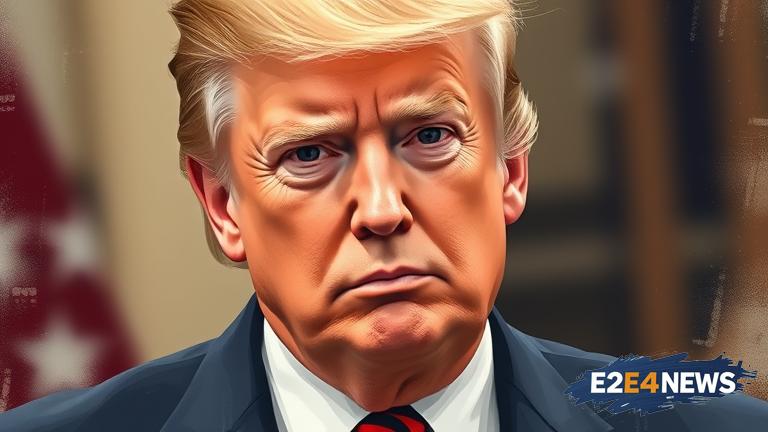The Trump administration’s decision to demote the Education Department’s Inspector General, Sandra Bruce, has sparked controversy and raised questions about the administration’s commitment to oversight and accountability. The demotion, which was announced in June, has been criticized by Democrats and watchdog groups, who argue that it undermines the independence and effectiveness of the Inspector General’s office. The Inspector General is responsible for investigating waste, fraud, and abuse within the Education Department, and is a critical component of the government’s oversight apparatus. The demotion of Bruce, who has been a vocal critic of the administration’s handling of education policy, has been seen as a retaliatory move by the Trump administration. The administration has argued that the demotion was necessary to improve the efficiency and effectiveness of the Inspector General’s office, but critics argue that it is a clear attempt to silence a vocal critic. The demotion has also raised concerns about the potential for political interference in the work of the Inspector General’s office, and has sparked calls for greater transparency and accountability within the administration. The Education Department has argued that the demotion was a personnel decision, and that Bruce will continue to serve as a senior official within the department. However, critics argue that the demotion is a clear attempt to undermine the independence and authority of the Inspector General’s office. The controversy surrounding the demotion has highlighted the importance of independent oversight and accountability within the government, and has raised questions about the Trump administration’s commitment to these values. The demotion has also sparked concerns about the potential for similar actions to be taken against other Inspectors General, and has raised questions about the long-term implications for the government’s oversight apparatus. The Inspector General’s office has been a critical component of the government’s efforts to root out waste, fraud, and abuse, and the demotion of Bruce has raised concerns about the potential for these efforts to be undermined. The controversy surrounding the demotion has also highlighted the importance of congressional oversight, and has raised questions about the role of Congress in ensuring that the administration is held accountable for its actions. The demotion has sparked a heated debate about the role of the Inspector General’s office, and has raised questions about the potential for similar actions to be taken against other watchdog agencies. The Trump administration’s handling of the demotion has been widely criticized, and has raised concerns about the potential for political interference in the work of the Inspector General’s office. The controversy surrounding the demotion has also raised questions about the long-term implications for the government’s oversight apparatus, and has highlighted the importance of independent oversight and accountability within the government. The demotion of Bruce has been seen as a clear attempt to undermine the independence and authority of the Inspector General’s office, and has sparked calls for greater transparency and accountability within the administration. The Education Department’s handling of the demotion has been widely criticized, and has raised concerns about the potential for similar actions to be taken against other Inspectors General. The controversy surrounding the demotion has highlighted the importance of congressional oversight, and has raised questions about the role of Congress in ensuring that the administration is held accountable for its actions.





